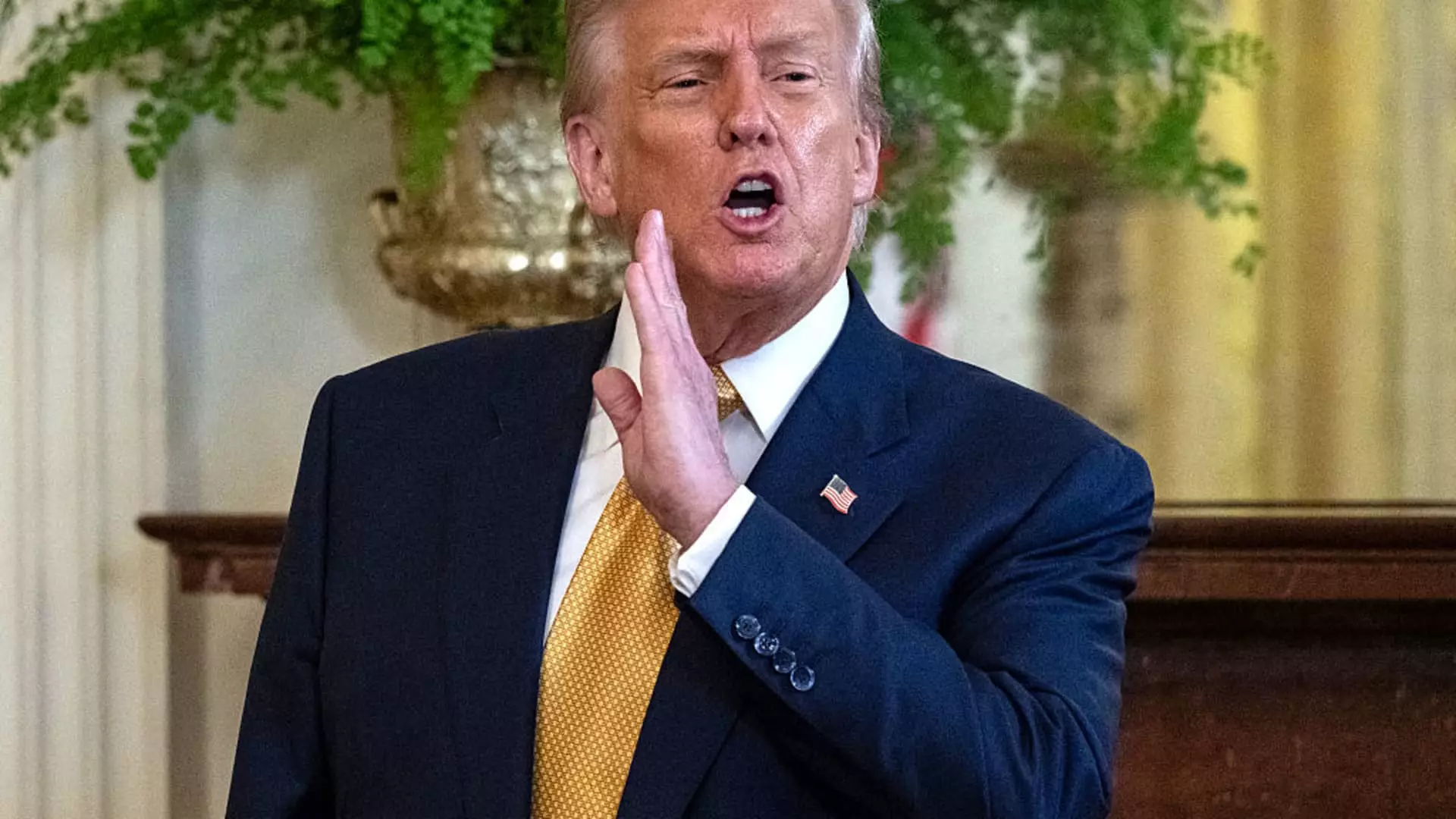The once-predictable realm of international trade has turned into a high-stakes game of negotiation, brinkmanship, and strategic maneuvering. Under President Donald Trump’s administration, the focus on trade has become increasingly confrontational, reflecting a broader shift toward protectionism that threatens to unravel decades of economic cooperation. His recent pivot toward intensifying negotiations with the European Union signals both an opportunistic attempt to reshape transatlantic relations and a gamble that could backfire if not carefully managed. While the initial agreement with Japan injected a dose of optimism, it also laid bare the fragility of trust among global economic powers.
The Trump administration’s hardline stance on tariffs—imposing 30% duties on EU imports unless demands are met—embodies a clear departure from multilateral norms. Instead of fostering win-win scenarios, these tariffs risk igniting retaliation and escalating into a broader trade war with unpredictable repercussions. European leaders, already wary of how America’s protectionist policies threaten their economic stability, are now faced with the challenge of maintaining unity amid mounting pressures. The EU’s primary objective remains to strike a negotiated agreement, yet the pressure to fast-track a deal—by August 1—is creating a high-stakes deadline that could push negotiations into a dangerous zone of brinkmanship and miscalculation.
The Japan Deal: A Catalyst or a False Hope?
The recent accord with Japan has stirred cautious optimism among market participants and trade analysts. However, many experts view this agreement as a double-edged sword. On one hand, it demonstrates the Biden administration’s willingness to pursue trade agreements that reduce tariffs and create smoother pathways for key sectors like automotive manufacturing. On the other, it exposes the delicate nature of U.S. trade diplomacy—highlighting how concessions made to one major economy might influence negotiations with others, such as the European Union.
In particular, the reduction of auto tariffs to 15% from a punitive 25% indicates a willingness to indulge in sector-specific compromises. For EU stakeholders, this raises critical questions: Will similar concessions be extended to Europe? And what leverage does the EU possess should the U.S. choose to escalate tariffs further? Car manufacturers—core players in transatlantic trade—stand at the center of this brewing conflict. With the EU’s automobile exports to the U.S. worth billions, any disruption risks damaging the broader economic ecosystem that binds these two regions.
The Geopolitical Stakes Beyond Borders
While the focus remains on U.S.-EU and U.S.-Japan relations, the geopolitical chessboard extends to China and other Asian powers. European leaders, led by Ursula von der Leyen and Antonio Costa, are traveling to Asia to forge their own strategic alliances. Their meetings with Japanese and Chinese officials underscore an awareness that economic stability depends on a balanced, multilateral approach—something that unilateral protectionist policies threaten to undermine.
U.S. policies have created strains with China, a major economic partner and rival, complicating Europe’s attempts at diversification. Beijing’s concerns about increased U.S. pressure on the EU to align with American anti-China rhetoric injects further complexity into already tense negotiations. European officials recognize that aligning too closely with U.S. protectionism could jeopardize lucrative trade relations and strategic partnerships across Asia.
In this climate, the EU finds itself caught between competing interests: defending its economic sovereignty, maintaining open trade policies, and navigating the unpredictable tides of American politics. The delicate diplomacy underway hints at a larger truth—trade wars are not driven solely by economics but by shifting power dynamics, national interests, and the overarching uncertainty of global order. The path forward will define whether the EU and the U.S. can reconcile their differences or whether mutual mistrust escalates into an entrenched conflict crippling international cooperation.


Leave a Reply